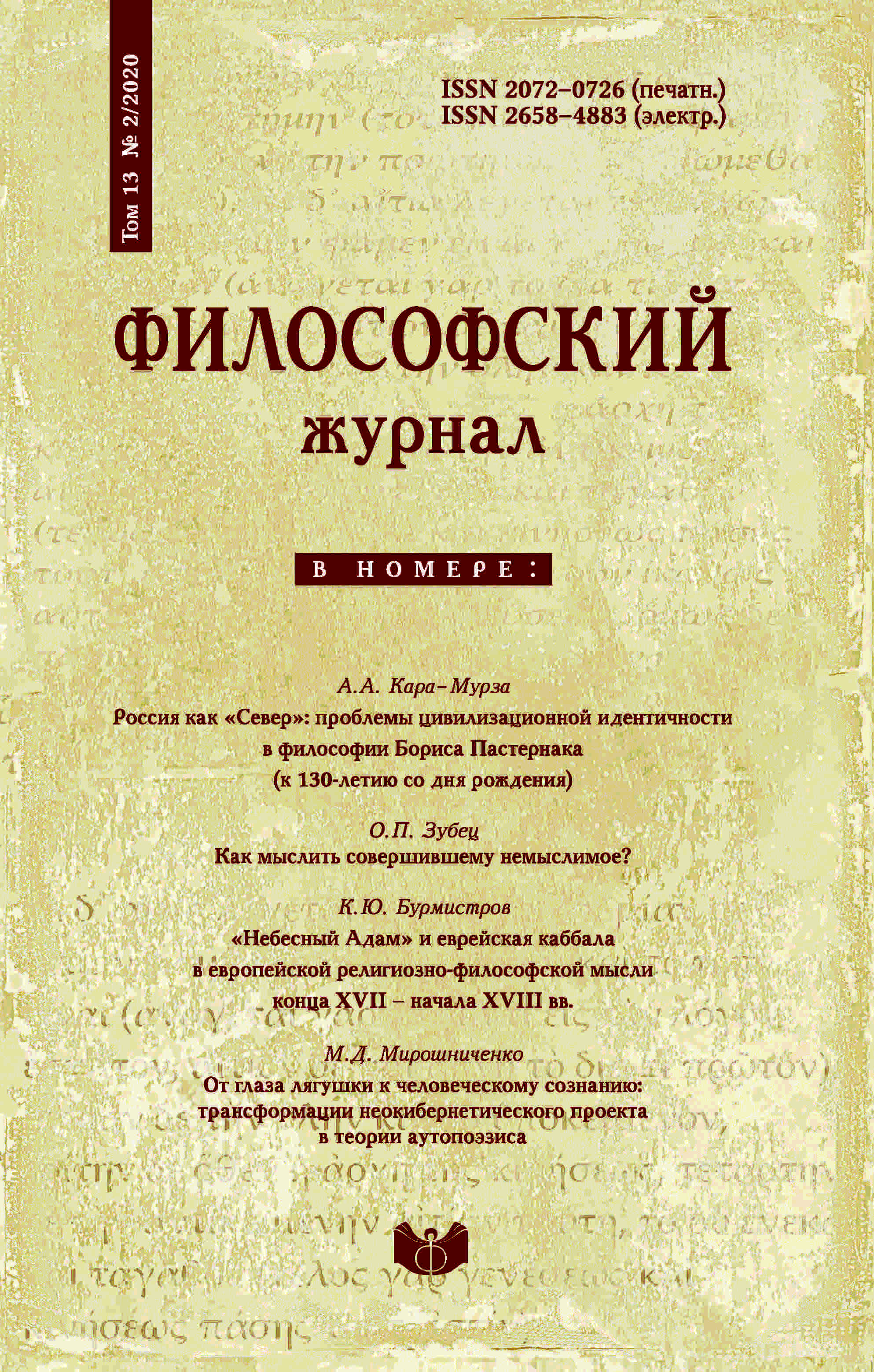Two views on the poetry of F. Hölderlin: M. Heidegger and Y. E. Golosovker
DOI:
https://doi.org/10.21146/2072-0726-2020-13-2-97-111Keywords:
Golosovker, Heidegger, Hölderlin, poetry, madness, German romanticism, Russian philosophyAbstract
At approximately the same time (i.e. in 1920-s and 1930-s), two contemporaries, M. Heidegger and Y.E. Golosovker, turned their attention to the poetry of F. Hölderlin. This article discusses their views on the writings of the German poet. Despite the fact that no direct intellectual contacts were found between the thinkers, Hölderlin’s poetry becomes the point of intersection of their interests, making it possible to identify the “parallels” without contact. Through Heidegger’s scheme (gods, poet, people) and the three dialectics of Golosovker (healing-sacrifice-transformation) the article shows the similarities and fundamental differences in their interpretation of Hölderlin as well as the many ways in which their interpretations complement each other. The article analyzes the concept of “madness” as it was understood by each thinker. According to Golosovker, the cause of madness is “honest burghers” (the people) – contemporaries of the poet; Heidegger, on the other hand, saw the source of the disease in the “excessive brightness of the light” and “hints of the gods”, which had been “revealed” to Hölderlin. The interpretation of “nature” in Hölderlin’s poetry requires special attention: the two thinkers offer different optics through which the poet appears as a proponent of an aesthetic panpsychism or a special kind of ontology. In their exploration of Hölderlin, the two philosophers draw important conclusions about modernity as a kind of intermediate era. They call it “impoverished time” or a period between “the first and second harmonies”. Heidegger and Golosovker offer two solutions to the problem of modernity. In each of the solutions, the poet occupies the key position. The differences in the interpretations largely reflect the biographies of both thinkers and the historical context, as discussed in the final part. Not only an understanding of modernity, but also a hope or lack thereof with respect to the future is an important topic in the potential Russian-European dialogue between two contemporaries about Hölderlin’s poetry.






